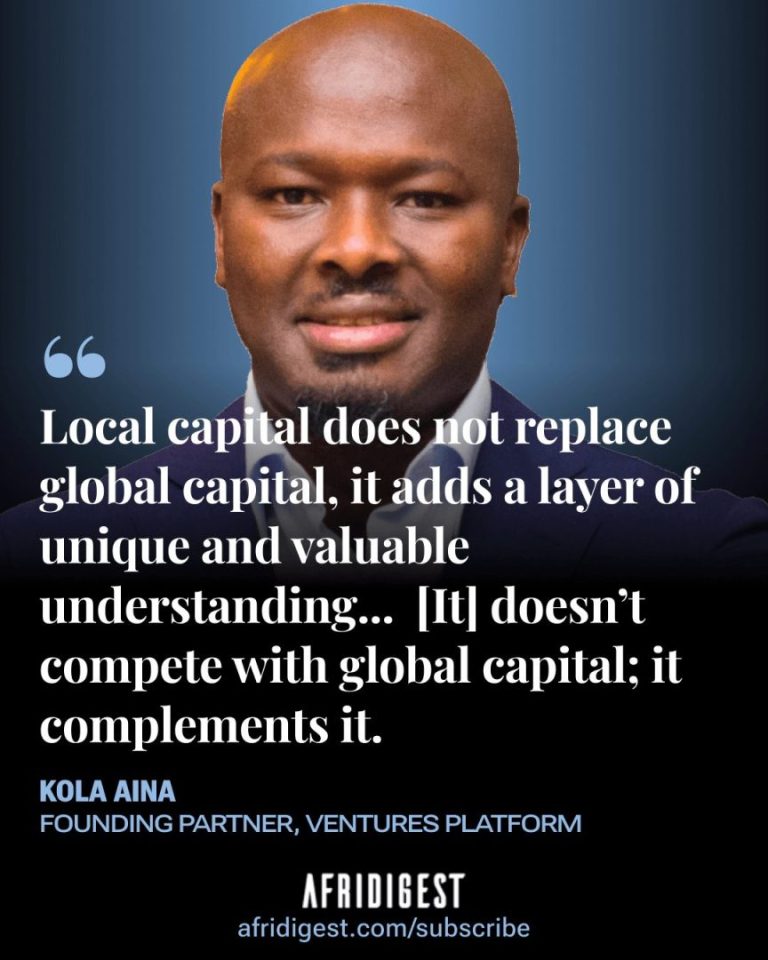
The call for local capital isn’t meant to replace foreign investment in Africa — it’s meant to strengthen it.
That’s Kola Aina, Founding Partner of Ventures Platform, challenging the zero-sum thinking that sometimes dominates discussions about startup funding in African markets.
“Local capital does not replace global capital, it adds a layer of unique and valuable understanding,” Aina explains. “[It] doesn’t compete with global capital; it complements it [with] context, local insight, and a long-term view shaped by lived experience.”

His timing is significant. In Q1 2025, local investors participated in more deals across Africa’s startup ecosystem than foreign investors — a milestone that Aina sees not as a shift away from global capital, but as an expansion of the continent’s funding base.
What makes local capital uniquely valuable?
According to Aina, it’s what he calls “capital with context”:
- Investors who can navigate Cairo’s traffic & Lagos’s community dynamics
- Regulatory insights & trusted networks built on proximity & shared experience
- Deep relationships that go beyond contractual transactions
- The ability to work within informal ‘permission-based’ systems
- A long-term view by default
“The message is not about replacing foreign capital,” Aina emphasizes. “It’s about seeing more participation from local capital so we can have a more resilient ecosystem.”
“When foreign [investors] have shocks in their own economy, they tend to slow down investment in other regions. So this is about resilience. There’s also a signaling effect. If foreign investors don’t see local investors playing, then why should they keep coming back?”
His vision builds on successful models worldwide: Silicon Valley’s combination of local endowments and pension funds and international capital, China’s state-backed funds working with domestic tech conglomerates and foreign private investors, and India’s mix of family offices, government co-investment, and global VCs.
“Our path will look different,” Aina stresses.
He advocates unlocking pension and insurance funds (representing over $20 billion in untapped capital), implementing tax incentives like Nigeria’s Startup Act, revisiting expectations around scale (“not every company needs to be a unicorn”), and expanding the base of local angel investors.
The goal?
Building partnerships that are “more balanced, resilient, and inclusive” — and ensuring Africans own meaningful stakes in their continent’s innovation economy.
What’s your take?
- Is there an authentic “African model” for innovation financing that can emerge alongside global capital?
- Should African pension funds be investing in high-risk startups to boost returns, or is this too risky for retirement savings on a continent with the lowest per-capita incomes?
- Do you agree that investors in Africa need to “revisit [their] idea of scale and terminal exit valuations”? Is a focus on ‘unicorns’ actually hurting startup ecosystems across the continent?





Share: